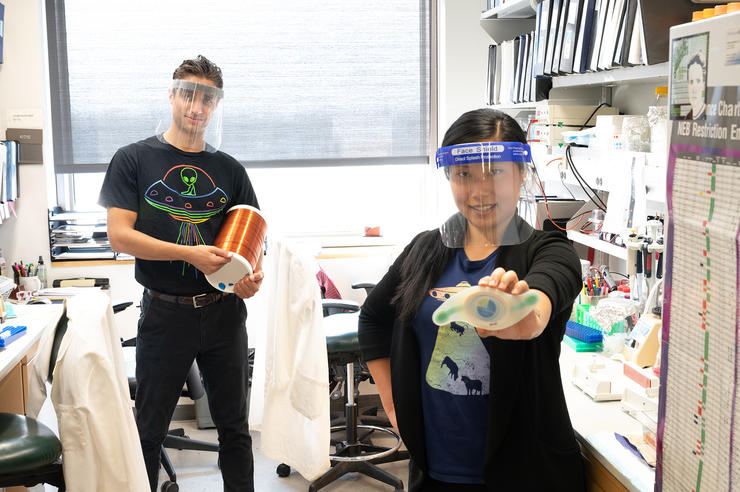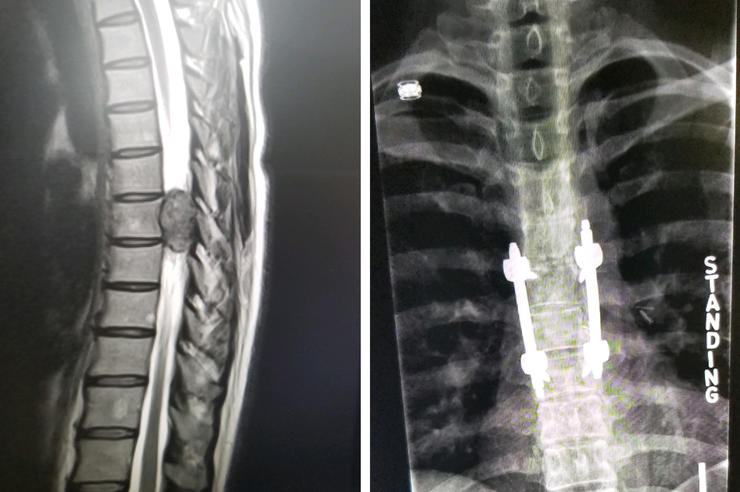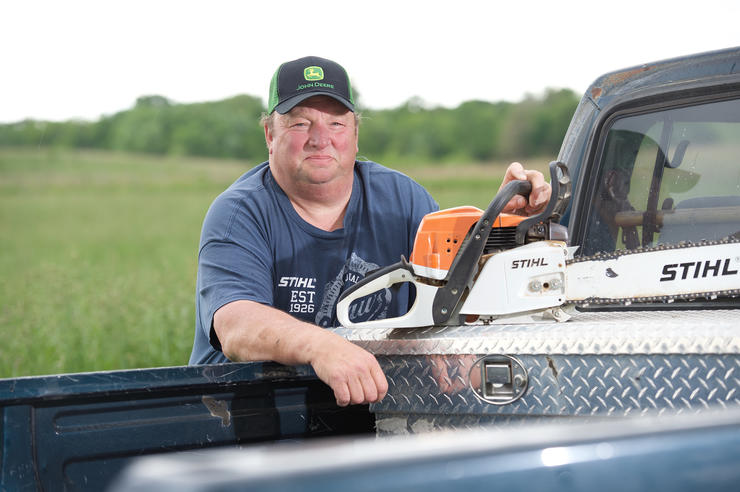Second opinion gets man back in the game
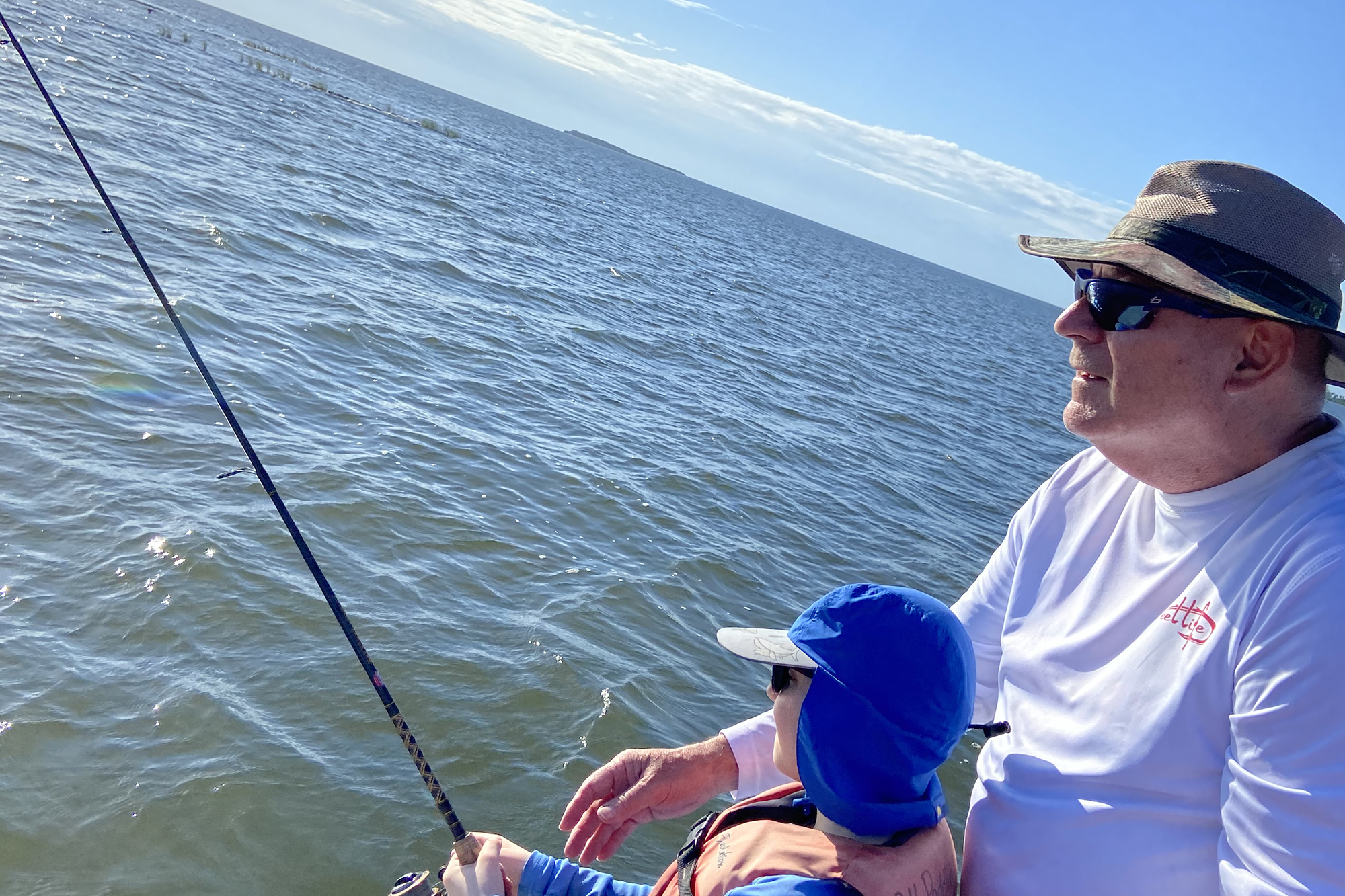
Three months after surgery in June 2019 to correct a pinched nerve in his spine that was causing severe leg pain, Owen Shunkwiler’s pain had only gotten worse. Simple activities like walking or even just sitting through a meal still left him in agony.
Shunkwiler, of Urbandale, Iowa, consulted with his medical team to find out when the pain would go away. After a follow-up procedure, he learned that it might take up to a year before he could return to his normal, pain-free life.
That’s when Shunkwiler decided it was time to seek a second opinion from the spine surgery team at University of Iowa Hospitals & Clinics to find out if he had options to end his pain sooner.
Shunkwiler made an appointment with UI orthopedic spine surgeon Andrew J. Pugely, MD. Pugely is an expert at performing complex revision surgeries. Patients across Iowa consult with him when they need a second opinion on their spine care.
Pugely discovered that Shunkwiler’s pain was caused by failure of the metal parts that were used in the original surgery. In February 2020, Pugely performed revision surgery that gave Shunkwiler the relief he sought.
“I feel like I’m living again,” Shunkwiler says. “I am so appreciative of the care I found with Dr. Pugely and his team at UI Hospitals & Clinics.”
Waiting for the pain to end
Married for more than 40 years, Shunkwiler and his wife, Lucia, have two daughters and five grandkids. Until the pinched nerve started causing his leg pain, Shunkwiler enjoyed an active life with his family, including biking, running, playing golf, and fishing.
But pain in his leg forced him to cut back on his activities. Eventually the pain was so severe that he had to lie flat on the floor or in bed to get relief.
“I feel like I’m back to normal. I can stand to go fishing and ride my bike again. Now I’m looking forward to golfing. This would not be possible without Dr. Pugely and the team.”
“With each step, I had a sharp, shooting pain in my leg and my foot,” Shunkwiler says. “I couldn’t walk through the grocery store without leaning on the cart. And even that was painful. Then, I couldn’t sit long enough at a table to have a meal.”
His doctor took X-rays and diagnosed Shunkwiler with isthmic spondylolisthesis, a condition in which vertebrae in the spinal column deteriorate and slip forward. The slipped vertebrae pressed on his nerve and caused the pain.
Isthmic spondylolisthesis is often treated with rest, medication, or physical therapy. But some cases require surgery to decompress the nerve and fuse the two vertebrae using special screws and rods.
Shunkwiler had the surgery, but after two weeks of slight improvement, the pain grew even worse than before. By Labor Day, he was in so much pain that he couldn’t get out of bed. The surgeon performed a follow-up procedure but had no clear time line for when the pain would end.
“I got a bit better, but I never got back to where I was functional,” Shunkwiler says. “I was told I had to wait for relief—maybe months or a year. So I asked for a second opinion with Dr. Pugely.”
Finding a new solution for pain relief
Pugely says it’s important for patients to understand that a second opinion is a normal part of medicine—an extremely valuable new perspective on a patient’s condition that is not disrespectful to other doctors.
“It doesn’t mean the initial surgeon is a bad surgeon,” Pugely says. “Everyone sees the details from a different angle, and sometimes when it’s your own work, you need that outside perspective. The recovery after spine surgery can be tumultuous. It’s certainly possible that people can have issues. But if they’re still having pain, we don’t turn them away. We keep looking for reasons.”
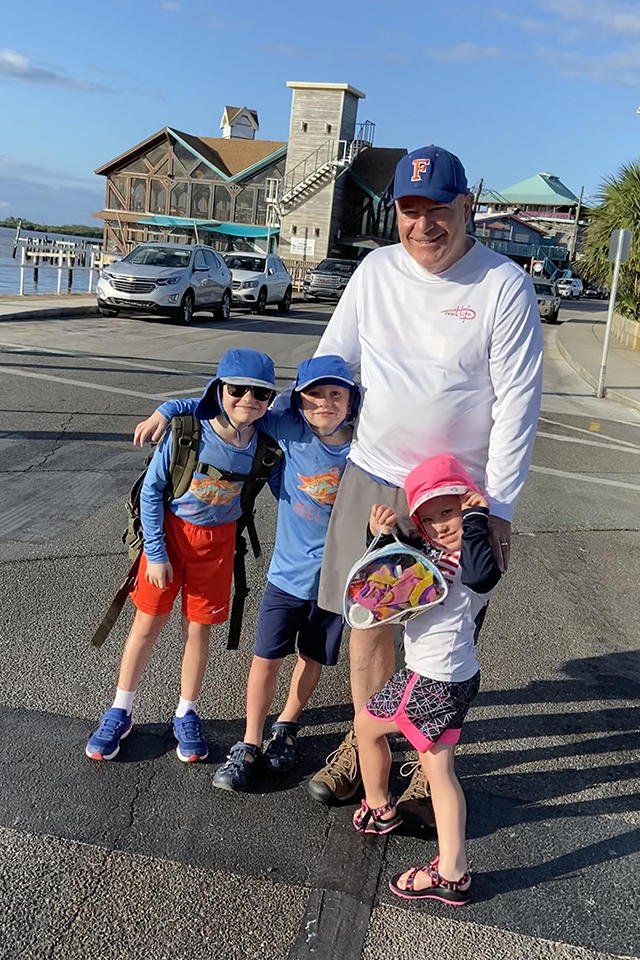
In June, Owen Shunkwiler went fishing with his grandkids, something he wondered if he’d ever get to do again. “I feel like I’m back to normal,” Shunkwiler says.
Pugely says not every patient needs surgery to treat chronic pain. His team offers many innovative solutions, including injections, physical therapy, and medication.
“As a large academic center, we have the luxury of being on the front edge of treatments,” Pugely says. “Our goal is to help someone feel better. There’s almost always something we can do to help.”
Shunkwiler appreciates Pugely’s dedication to finding solutions to his pain.
“He was professional and a team leader and was honest and able to communicate to me what the situation was and what the next steps could be,” Shunkwiler says. “I always had a next step and a clear path with Dr. Pugely.”
Improvement every week
After performing follow-up X-rays, Pugely discovered the cause of Shunkwiler’s pain.
“The metal used in the original surgery broke, and one of the screws did not have the best purchase,” Pugely says. “The metal didn’t hold Owen’s back together. His back was still able to move.”
In February 2020, Pugely performed an extensive revision lumbar decompression and fusion surgery, removing the first set of hardware that had broken.
“Every week since surgery, I experience improvement,” Shunkwiler says. “I can walk any distance now. I’m able to sit, stand, and do all that freely without pain medicine. I can take care of myself.”
In June, Shunkwiler went fishing with his grandkids, something he wondered if he’d ever get to do again.
“I feel like I’m back to normal,” Shunkwiler says. “I can stand to go fishing and ride my bike again. Now I’m looking forward to golfing. This would not be possible without Dr. Pugely and the team.”
